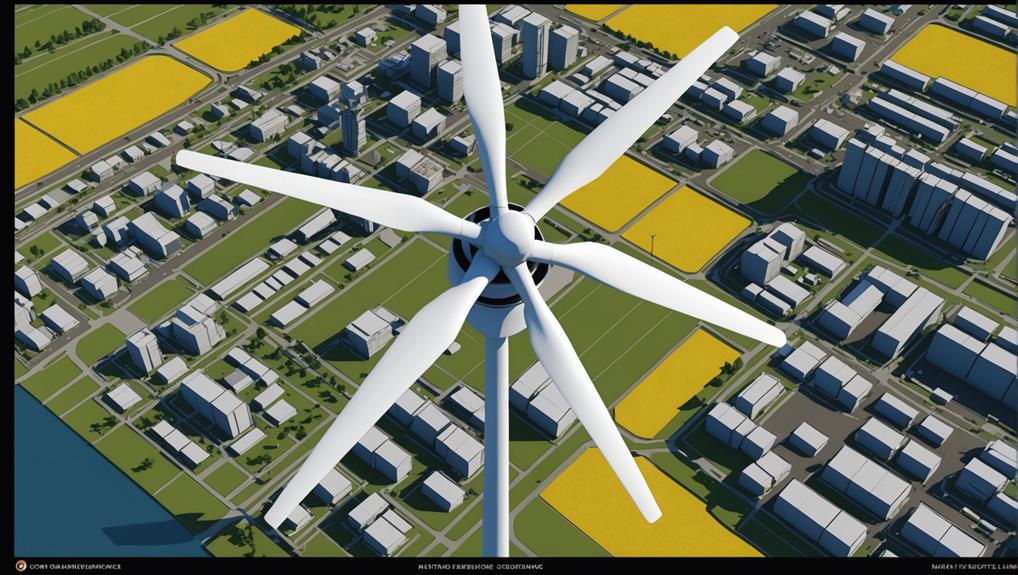Solar energy reduces greenhouse gas emissions, promoting sustainability and energy independence. It's renewable, offering reliable electricity while combating climate change. However, challenges like intermittency on cloudy days and high storage costs exist. Explore the full scope to grasp its impact and future trends.
Key Takeaways
- Positive: Solar energy reduces greenhouse gas emissions, promotes sustainability, and is a renewable energy source.
- Positive: Solar power aids in achieving sustainable development goals and displaces fossil fuel energy sources.
- Negative: Solar energy has intermittency issues on cloudy days and at night, impacting efficiency.
- Negative: High energy storage costs hinder nighttime use of solar energy.
- Negative: Land use challenges exist due to space requirements for solar panel installation.
Environmental Impact of Solar Energy
The Environmental Impact of Solar Energy is significant, as it plays a pivotal role in reducing greenhouse gas emissions and promoting sustainability. Solar energy, as a renewable energy source, offers a promising pathway towards a sustainable future by decreasing reliance on finite fossil fuels and aiding in achieving sustainable development goals.
However, the manufacturing process of solar panels can have environmental impacts due to the use of hazardous materials, potentially increasing the carbon footprint of solar energy systems. Despite this, the overall impact on the environment is considerably lower compared to traditional fossil fuel energy sources.
Solar power helps in reducing greenhouse gas emissions by displacing fossil fuel energy sources, contributing positively to the environment. Additionally, while solar panels consume water during production, their operational phase has minimal environmental impact, making them a cleaner alternative for energy generation.
Embracing solar energy can lead to a greener and more environmentally friendly future.
Financial Aspects of Solar Energy
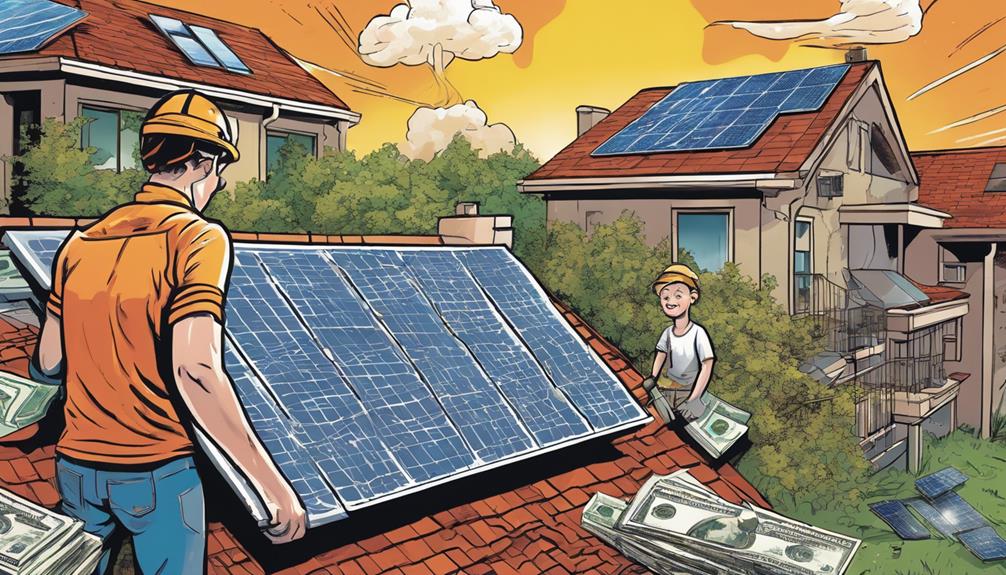
Embrace the financial advantages of solar energy, from reducing electricity bills to earning income through surplus energy sales. Installing solar panels not only trims your electricity expenses but also offers financial returns by selling Solar Renewable Energy Certificates (SRECs).
Additionally, the value of your property can rise significantly with solar panels, thanks to their low maintenance costs and eco-friendly appeal. If you're interested in a more communal approach, consider joining community solar projects that provide affordable access to solar energy benefits.
Solar Energy System Installation

When considering solar energy system installation, you'll find the process efficient and straightforward, requiring minimal effort on your part.
Maintenance costs associated with these systems are low, contributing to their long-term cost-effectiveness.
Installation Process Efficiency
With a streamlined installation process and minimal maintenance needs, solar energy systems offer a user-friendly solution for generating electricity. Solar panels are designed for easy installation on various roof types, making them a versatile choice for both residential and commercial buildings.
The efficiency of solar energy systems is evident in their ability to generate electricity reliably in any climate, showcasing their robustness and adaptability.
- Solar energy installations have a simple and straightforward installation process, reducing the time and effort required for setup.
- Minimal maintenance requirements ensure that once installed, solar energy systems operate efficiently with little upkeep necessary.
- The cost-effectiveness of solar energy systems is enhanced by their low maintenance costs, making them a sustainable and affordable option for renewable energy generation.
The installation process efficiency of solar energy systems not only simplifies the setup but also contributes to their overall reliability and long-term performance.
Maintenance Cost Analysis
Considering the low maintenance costs and straightforward installation process of solar energy systems, analyzing the overall maintenance expenses proves to be an important aspect of evaluating their long-term feasibility. Solar energy systems require minimal upkeep to maintain optimal performance due to their long lifespan and limited wear and tear. The installation process is straightforward, contributing to the system's overall efficiency. Additionally, the flexibility in installation options, including suitability for various roof types, makes solar energy systems a versatile choice for many households. Community solar projects offer a cost-effective alternative for those seeking to benefit from solar energy without individual installations.
| Maintenance Costs | Solar Energy Systems | Installation Process |
|---|---|---|
| Low | Straightforward | Minimal Upkeep |
| Long Lifespan | Limited Wear and Tear | Flexible Options |
Challenges of Solar Energy
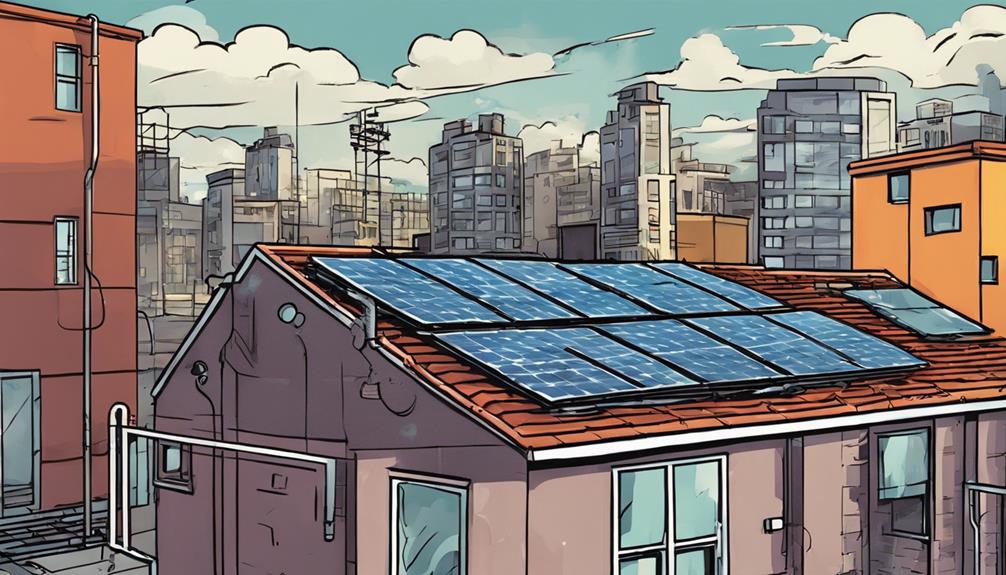
Solar energy faces various challenges that can impact its efficiency and widespread adoption. Some of the key challenges include:
- Intermittency: Solar energy can be inconsistent, with reduced efficiency on cloudy days and no energy production at night.
- Cost of Energy Storage: The high cost of energy storage for solar power, such as expensive batteries or grid connections, can be a barrier for nighttime use.
- Land Use: Solar panels require significant space for installation, which can be a challenge for locations with limited land availability.
Addressing these challenges is critical for maximizing the benefits that solar energy offers while mitigating the disadvantages. When considering installing solar panels, evaluating factors like initial cost, emissions generated during production, and the overall land use impact is essential.
Shifting to solar energy involves careful planning and considerations to guarantee a successful and sustainable switch to cleaner energy sources.
Solar Panel Benefits
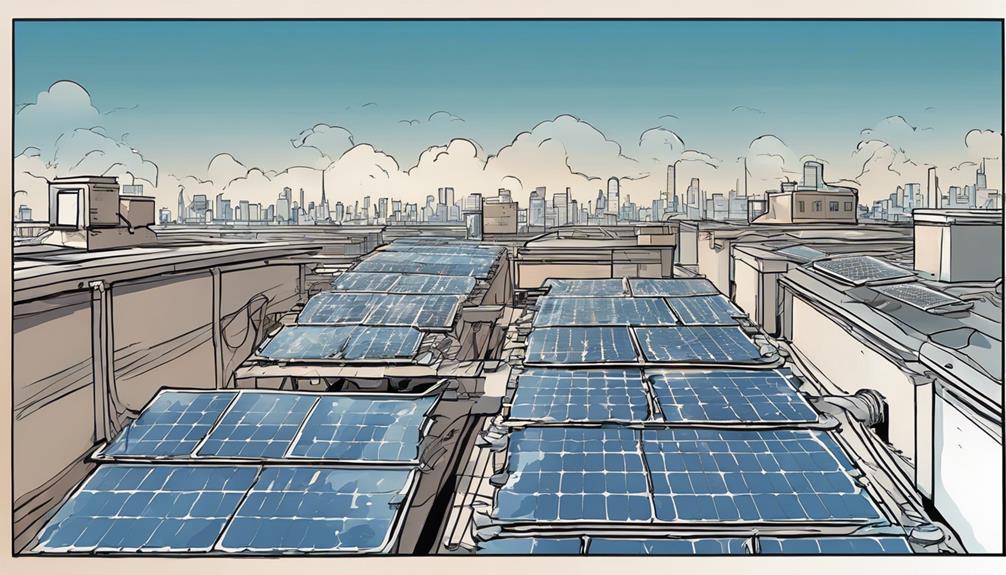
To fully understand the benefits of solar panels, it's important to grasp the various advantages they bring to both households and businesses. Solar panels harness renewable solar energy to generate electricity, leading to reduced power bills and potential financial gains through schemes like the Smart Export Guarantee (SEG).
Additionally, the production of solar energy creates minimal greenhouse gas emissions, making it a carbon-friendly alternative that contributes to a cleaner environment.
One of the key benefits of solar panels is their low maintenance requirements, ensuring top performance with minimal upkeep. Moreover, the versatility of solar panels allows for integration into building materials, enabling innovative solutions like transparent solar windows that can generate power while providing natural light.
Businesses, especially, can benefit significantly from solar energy by reducing operational costs and enhancing sustainability efforts. Essentially, solar panels offer a financially and environmentally friendly way to power homes and businesses efficiently.
Solar Energy Efficiency and Sustainability
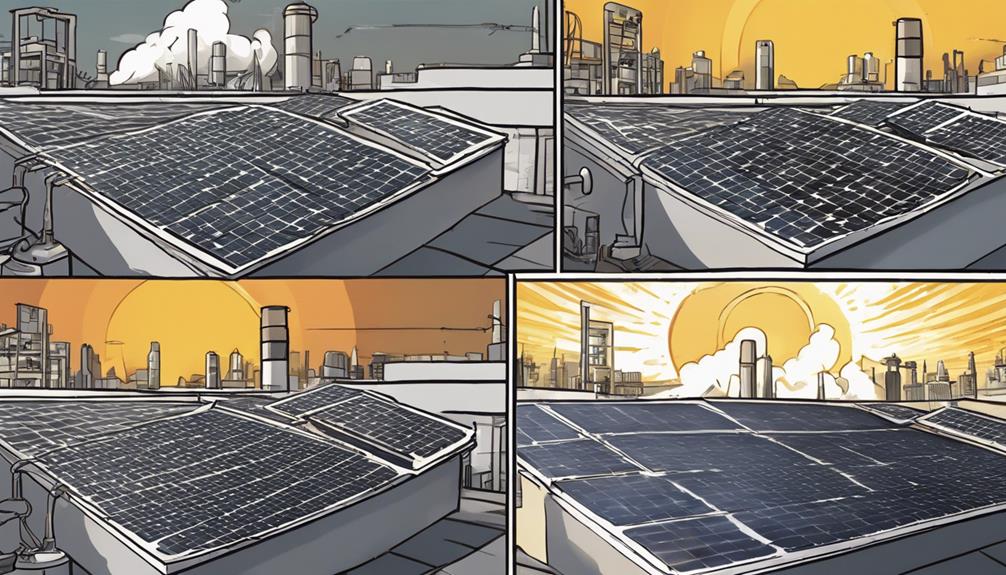
Solar energy's efficiency continually improves through advancements, enhancing its sustainability as a reliable power source.
Sustainable practices in solar energy production are pivotal for minimizing environmental impact and maximizing long-term benefits.
Energy Efficiency Advancements
With continuous advancements in energy efficiency and sustainability, the field of solar power is witnessing remarkable progress.
Technologies are constantly developing. The development of solar technologies is leading to more efficient ways to generate electricity, making solar power systems more effective and accessible.
Energy advantages. Solar energy offers numerous advantages, such as reducing energy bills, financial gains through schemes like the Smart Export Guarantee (SEG), and the potential to double or triple electrical input efficiency.
Technological advances. The continuous technological advancements in the solar industry have drastically improved the efficiency and sustainability of solar power systems, allowing for lower environmental impact and reduced greenhouse gas emissions.
These advancements not only enhance the energy generation capabilities of solar power but also contribute to a more sustainable and environmentally friendly energy source for the future.
Sustainable Solar Practices
Considering the long-term benefits and sustainability of solar energy practices, minimal maintenance requirements and consistent energy generation contribute to its efficiency and environmental friendliness. Solar energy, derived from renewable sources, offers a sustainable energy solution with solar panels installed in residential areas promoting the benefits of solar power.
Alongside cost-effective advantages, like reduced energy bills and potential financial gains through the Smart Export Guarantee (SEG) schemes, solar technology emphasizes efficient energy practices. The low maintenance needs of solar panels not only ensure peak performance but also decrease the necessity for frequent upkeep, enhancing sustainability.
With solar energy providing daily reliable electricity while minimizing environmental impact, it aligns with sustainable energy goals. Additionally, ongoing advancements in solar technology continue to improve efficiency, potentially doubling or tripling electrical input efficiency, further solidifying its place as an efficient and sustainable energy choice.
Solar Energy Implementation
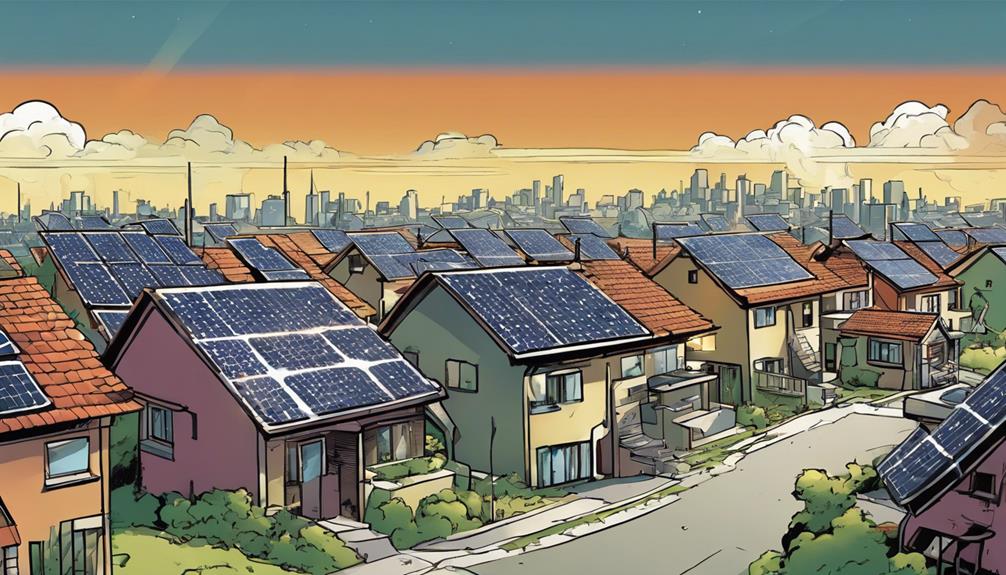
When looking to implement solar energy, the first step involves selecting the best solar panels based on efficiency and payback time evaluations.
To guarantee a successful changeover, consider the following:
- Connect with Professional Installers: Seek guidance and quotes from experts in solar energy to facilitate the installation of a solar power system.
- Evaluate Alternative Panels: Explore options like solar thermal panels for effective energy collection during nighttime and winter months.
- Consider Community Solar Projects: Participating in community solar initiatives can offer a cost-effective approach to implementing solar energy.
Solar Energy Applications

To understand the practical implications of solar energy, it's important to explore its diverse applications across various sectors.
Solar energy plays an essential role in powering residential homes, offering homeowners a sustainable and cost-effective alternative to traditional electricity sources.
In commercial buildings, solar energy is utilized to reduce operating costs and carbon emissions, fostering a more sustainable business model.
Additionally, the agricultural sector benefits from solar energy by using it for water pumping, lighting, and powering remote locations, thereby enhancing efficiency and decreasing reliance on fossil fuels.
Transportation systems also integrate solar energy for electric vehicles and charging stations, promoting clean and renewable energy solutions for sustainable mobility.
Furthermore, solar energy plays a critical role in space exploration by powering spacecraft and satellites, demonstrating the versatility and reliability of solar technology in extreme environments.
The widespread applications of solar energy highlight its importance in providing clean and sustainable energy solutions across different industries.
Future Trends in Solar Energy

Looking ahead, the future of solar energy holds promising advancements and innovations that will shape the global energy landscape.
- Projections indicate significant growth in solar power capacity worldwide.
- Expected advancements in energy storage technologies will address the challenge of storing excess energy efficiently.
- Foreseen cost reductions in solar energy will enhance competitiveness with traditional fossil fuels and broaden consumer accessibility.
In addition to these trends, ongoing innovations in technology are expected to drive efficiency improvements in solar panels, leading to increased energy output and improved system performance.
Moreover, the expansion of solar energy will be influenced by evolving policies and regulations, playing an essential role in shaping the direction of solar energy adoption and its integration into existing energy systems.
As these trends continue to unfold, the future of solar energy appears promising, offering sustainable solutions to meet the world's growing energy needs.
Benefits of Solar Energy
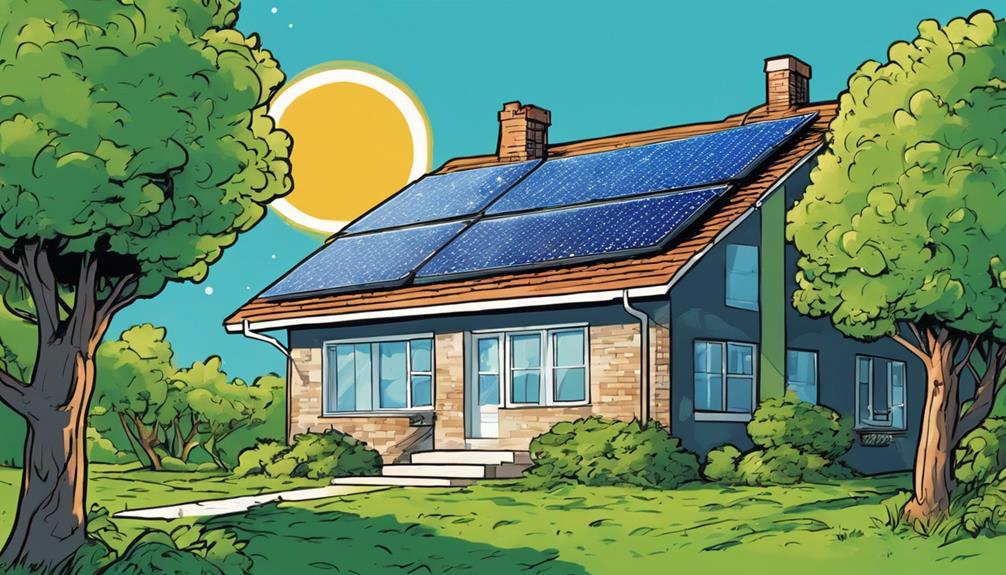
Solar energy offers numerous benefits that contribute to its growing popularity and adoption worldwide. As a sustainable and renewable source of energy, solar power is abundant and will last for billions of years. One of its significant advantages is its minimal environmental impact, as it produces no greenhouse gas emissions, helping to reduce carbon emissions and combat climate change. In addition, certain solar technologies are water-efficient, further aiding in environmental conservation.
Using solar energy promotes energy independence, allowing every country to potentially become a self-sufficient energy producer. This not only diversifies the global energy mix but also reduces reliance on finite fossil fuels. Besides, as solar technology advances, it becomes increasingly cost-competitive with traditional energy sources, mitigating its expensive disadvantages and making it a viable option for many consumers.
Moreover, utilizing solar energy can lead to various financial benefits. Installing solar panels can increase property value, result in lower monthly electricity bills, and offer tax incentives such as the federal solar investment tax credit.
Frequently Asked Questions
What Are the Positive Effects of Solar Energy?
When you consider the positive effects of solar energy, you'll appreciate its ability to reduce electricity bills, provide sustainable power, and allow you to sell excess energy back to the grid for additional savings.
What Is Positive and Negative in Solar?
In solar energy, you'll find benefits like renewable power lowering costs and emissions, but challenges exist too. Weather affects efficiency and storage is key. Installation space can be tight, and production has environmental impacts.
What Are the Pros and Cons of Solar Energy?
When considering the pros and cons of solar energy, you'll find benefits like reduced emissions, lower bills, and tax incentives. However, challenges include intermittency, land use concerns, rare materials, and disposal issues. Despite drawbacks, solar energy remains a promising sustainable option.
What Negative Effects Does Solar Energy Have?
When considering the negative effects of solar energy, it's important to acknowledge the environmental impact of solar panel manufacturing, disposal, and recycling. Hazardous chemicals, energy demand, and recycling challenges pose significant concerns for sustainability.
How Do the Economic Impacts of Solar Energy Affect Its Positive and Negative Effects?
The economic impact of solar energy encompasses both positive and negative effects. On one hand, the shift towards solar energy creates job opportunities and drives economic growth. On the other hand, the initial investment in solar technology can be costly, impacting businesses and consumers. Balancing these factors is crucial for sustainable energy transitions.
How Does Excess Solar Energy Impact the Environment and Grid System?
excess solar energy management.is crucial for the environment and grid system. Without proper management, overloading the grid with surplus energy can lead to instability and potential power outages. Additionally, uncontrolled solar energy can impact the environment by causing voltage fluctuations and damaging sensitive electrical equipment.
Conclusion
To sum up, the pros of solar energy outweigh the cons. It's a win-win situation.
With its positive impact on the environment and potential financial savings, solar energy is a smart choice for the future.
So go ahead and jump on the solar bandwagon – you won't regret it!

